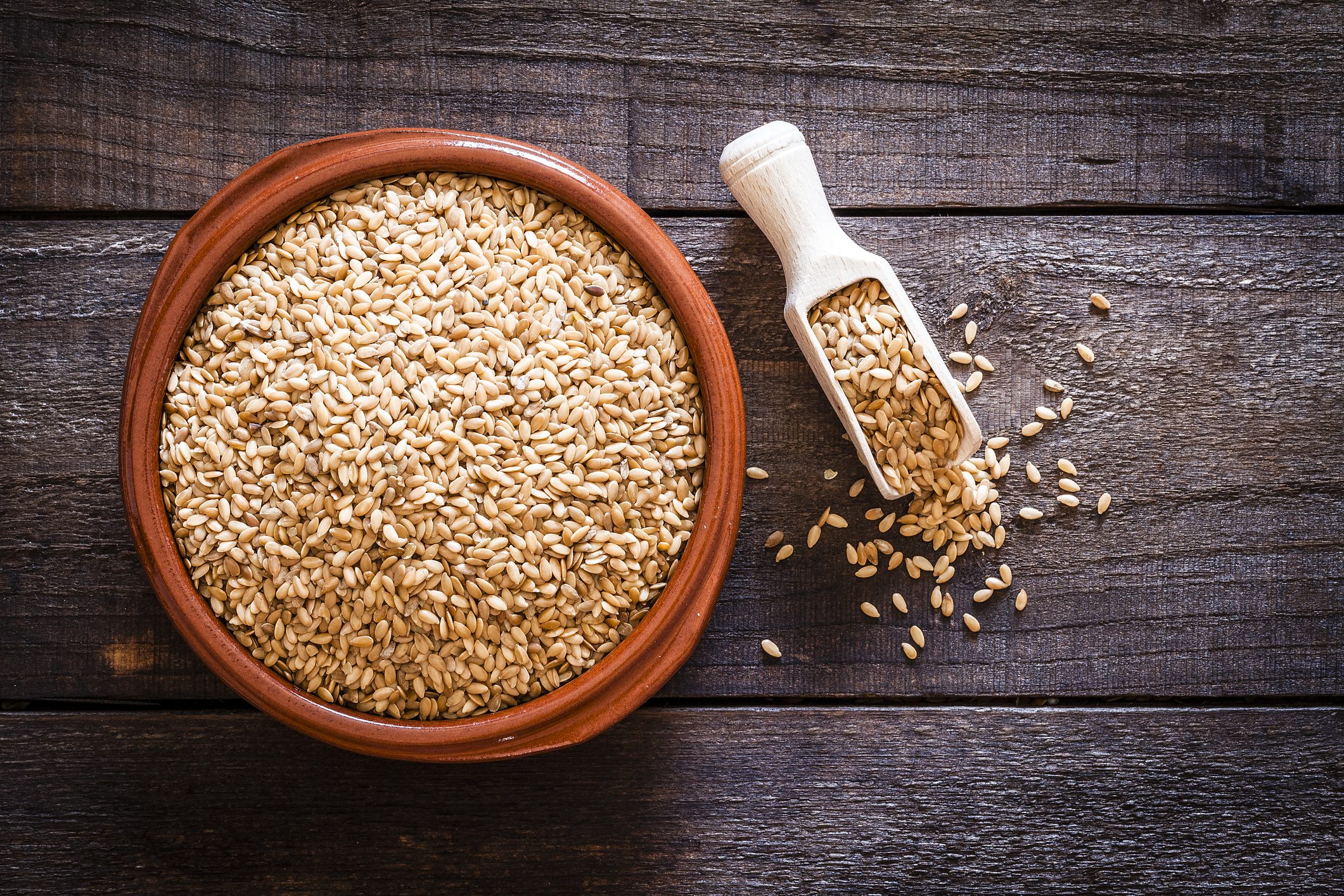Flaxseed has maintained its value for millennia due to its incredible health benefits. From aiding digestion to potentially lowering cancer risks, thanks to its rich antioxidant and omega-3 content, flaxseed is truly a powerhouse. Historical figures like King Charlemagne recognized its importance, mandating its inclusion in daily diets to emphasize its significance. In this piece, we’ll explore the myriad benefits of flaxseed and why incorporating it into your diet is more crucial than ever. Enjoy the read!
1 BOOSTS WELL-BEING
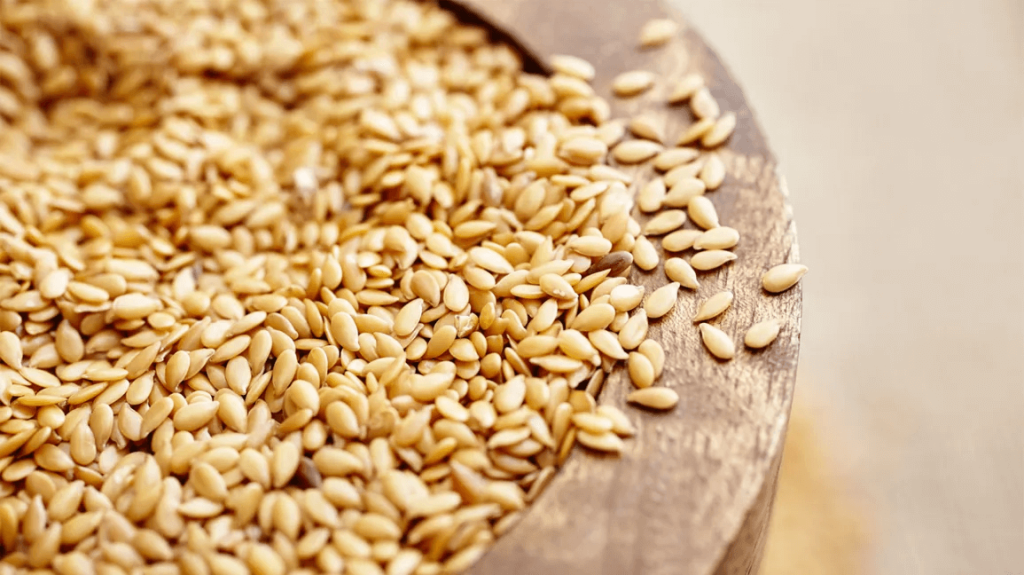
Flaxseed is a fiber-rich food, historically used for producing fabrics like linen. It contains both soluble and insoluble fibers. While both are beneficial, it’s the insoluble fiber that regulates our digestive health, promoting regularity, alleviating constipation, and providing relief from hemorrhoids.
2 LOWERS CHOLESTEROL
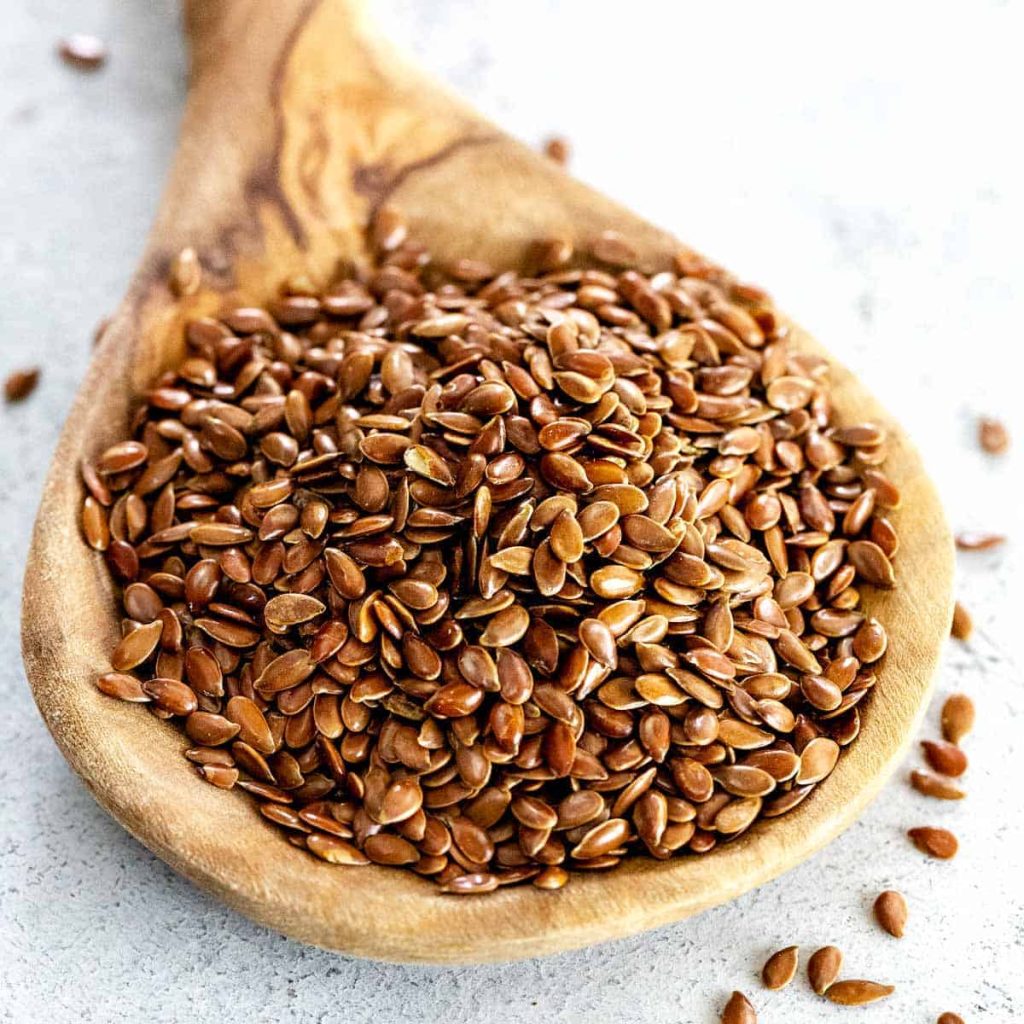
Flaxseed’s soluble fiber has multiple health benefits, including binding with cholesterol in the digestive system to reduce its absorption. Studies have shown that diets including flaxseed result in lower LDL (bad cholesterol) levels without affecting HDL (good cholesterol). Elevated LDL levels are linked to increased risk of heart-related conditions like heart attacks.
3 ASSISTS IN DIABETES MANAGEMENT
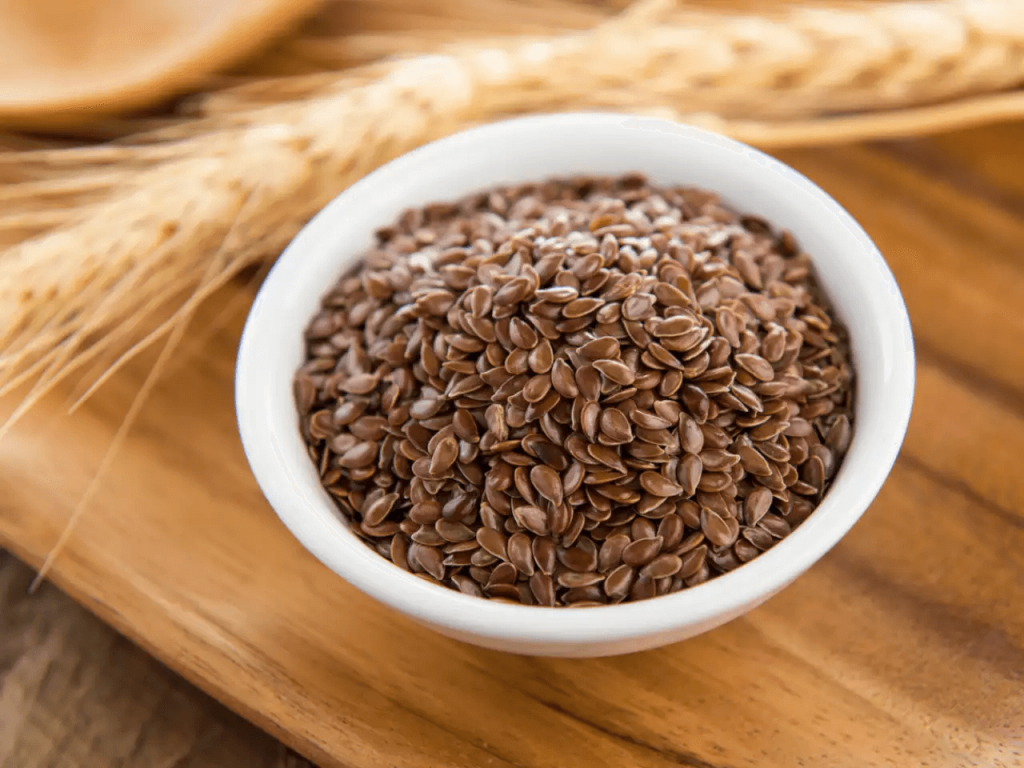
Just as flaxseed fiber aids in cholesterol reduction, it also helps manage diabetes symptoms. Its high lignan content supports blood sugar regulation, as demonstrated in a study where diabetic women consuming flaxseed powder experienced significant blood sugar reductions.
4 EXCELLENT SOURCE OF PROTEIN

Protein is vital for energy, muscle growth, and overall health. While meat is a common protein source, excessive consumption can elevate health risks. Flaxseed offers a plant-based alternative rich in arginine, aspartic acid, and glutamic acid, making it an excellent protein source for vegetarians and vegans alike.
5 AIDS IN WEIGHT MANAGEMENT

Looking for a breakfast alternative? Flaxseeds can help manage hunger and support weight control. Research has shown that flaxseed consumption increases feelings of fullness due to its fiber content. When combined with a balanced diet and exercise, flaxseed can help in maintaining a healthy weight.
6 ALLEVIATES INFLAMMATION
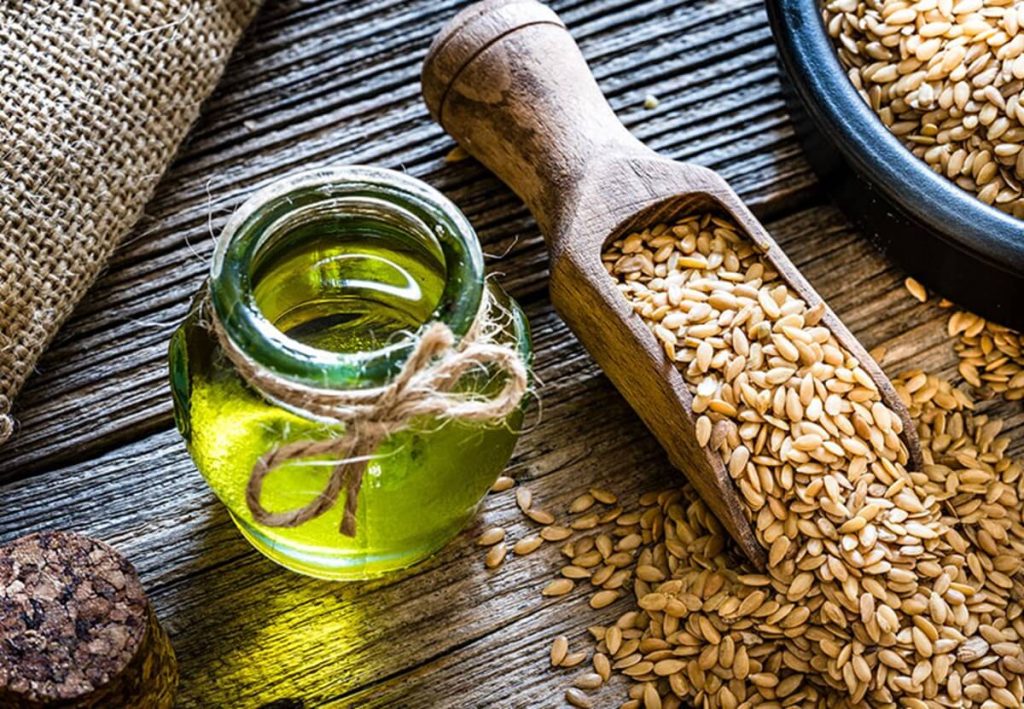
Chronic inflammation is linked to various health issues, including cancer and arthritis. Flaxseed, rich in the omega-3 fatty acid alpha-linolenic acid (ALA), can reduce inflammation. While more research is needed, flaxseeds also contain lignans that may further aid in reducing inflammation.
7 EASES MENOPAUSE SYMPTOMS
Managing menopause symptoms can be challenging, but flaxseeds may offer relief. A study of 140 women found that consuming ground flaxseed for three months reduced menopausal symptoms and alleviated menopause-related constipation.
8 PREVENTS HEART DISEASE
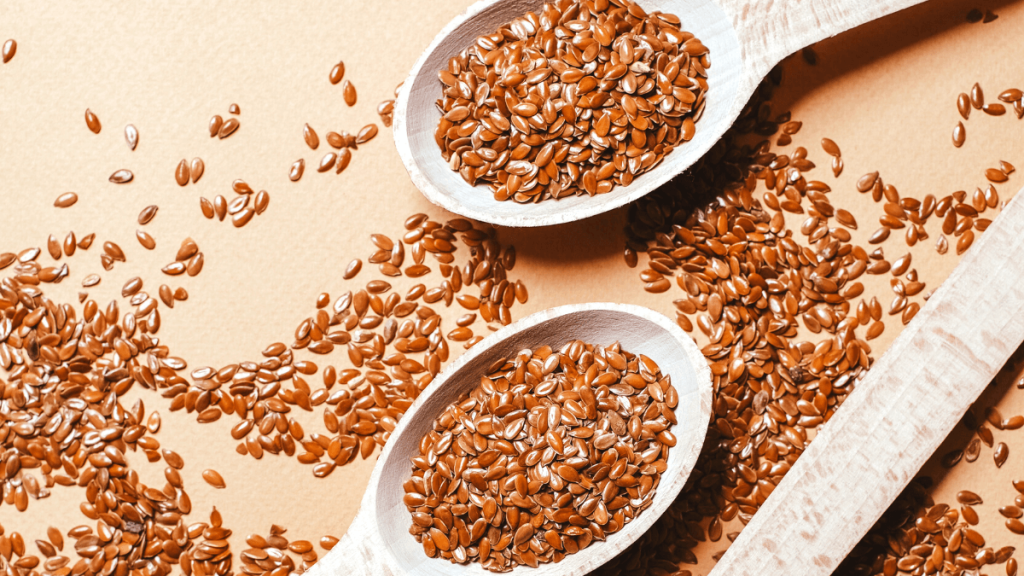 Heart disease remains a leading global cause of death. By incorporating heart-healthy foods like flaxseed into your diet, you can mitigate cardiovascular risks. Flaxseed’s high fiber content, omega-3 fatty acids, and lignans all contribute to reducing inflammation and high blood pressure, key factors in heart disease prevention.
Heart disease remains a leading global cause of death. By incorporating heart-healthy foods like flaxseed into your diet, you can mitigate cardiovascular risks. Flaxseed’s high fiber content, omega-3 fatty acids, and lignans all contribute to reducing inflammation and high blood pressure, key factors in heart disease prevention.
9 RICH IN OMEGA-3 FATTY ACIDS
 Omega-3s benefit more than just heart health; they also address conditions like diabetes and rheumatoid arthritis. As our bodies cannot produce them, regular intake is essential. Flaxseed’s ALA can reduce risks of strokes, fractures, depression, and heart disease.
Omega-3s benefit more than just heart health; they also address conditions like diabetes and rheumatoid arthritis. As our bodies cannot produce them, regular intake is essential. Flaxseed’s ALA can reduce risks of strokes, fractures, depression, and heart disease.
10 REDUCES CANCER RISK
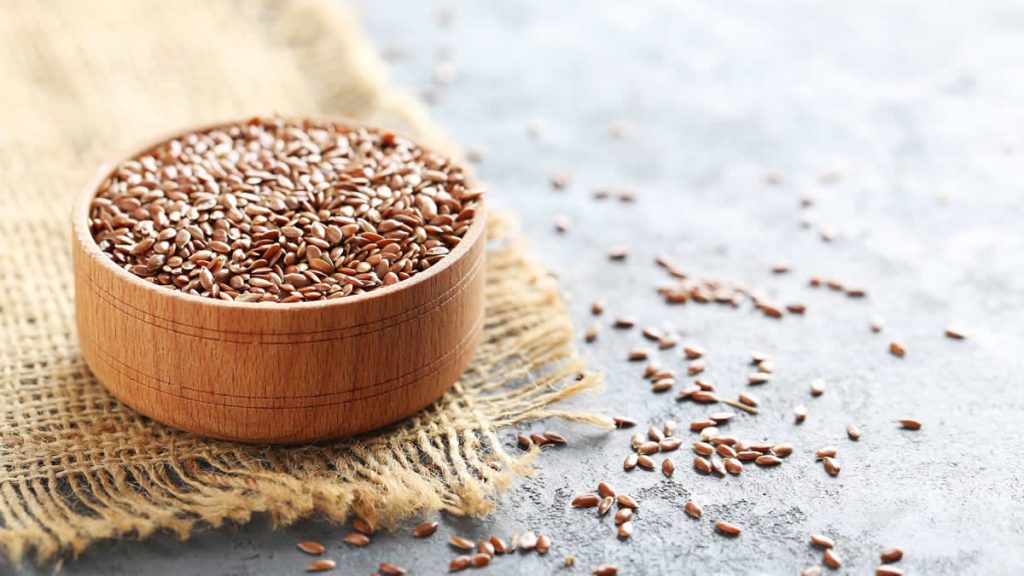
Flaxseed offers yet another reason to be part of your diet—its lignans. These plant compounds have shown promise in inhibiting the growth of hormone-sensitive cancers, helping to lower overall cancer risks.
Incorporate flaxseed into your diet to harness its full health potential!


